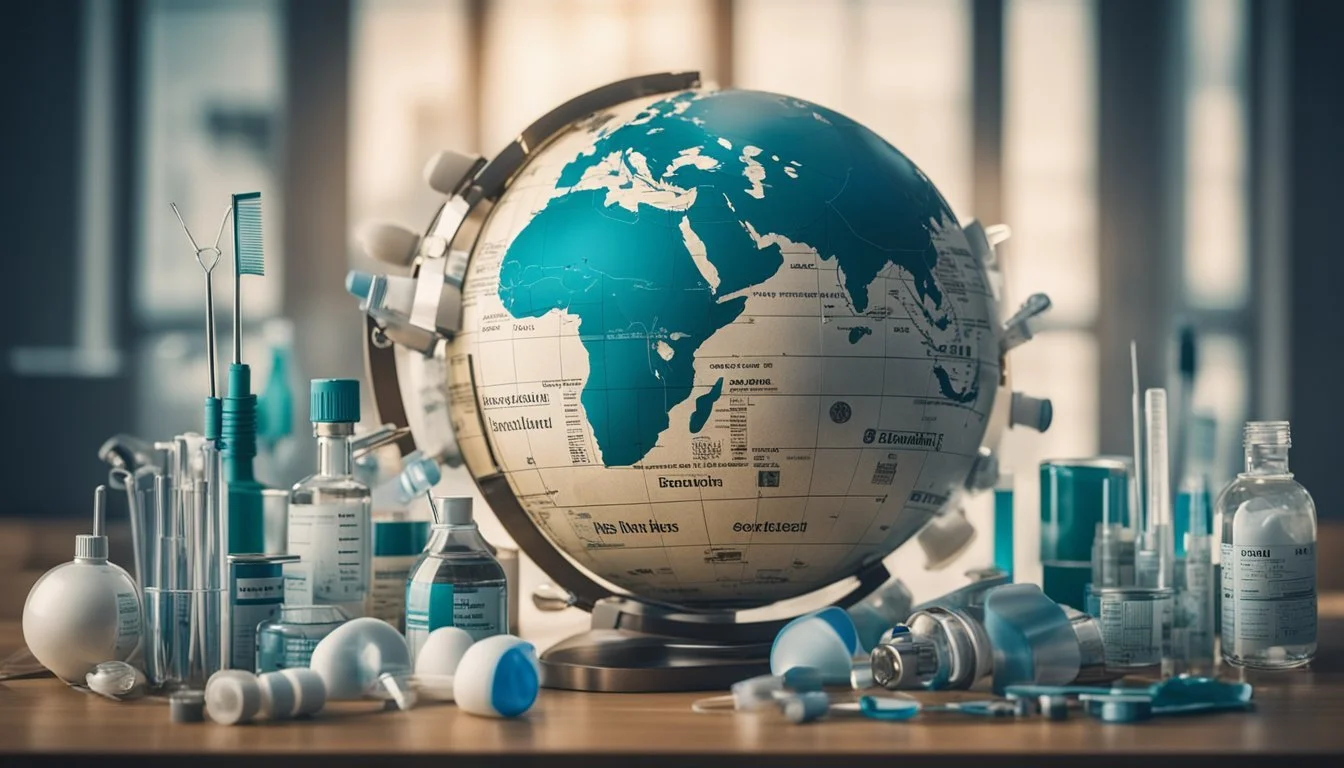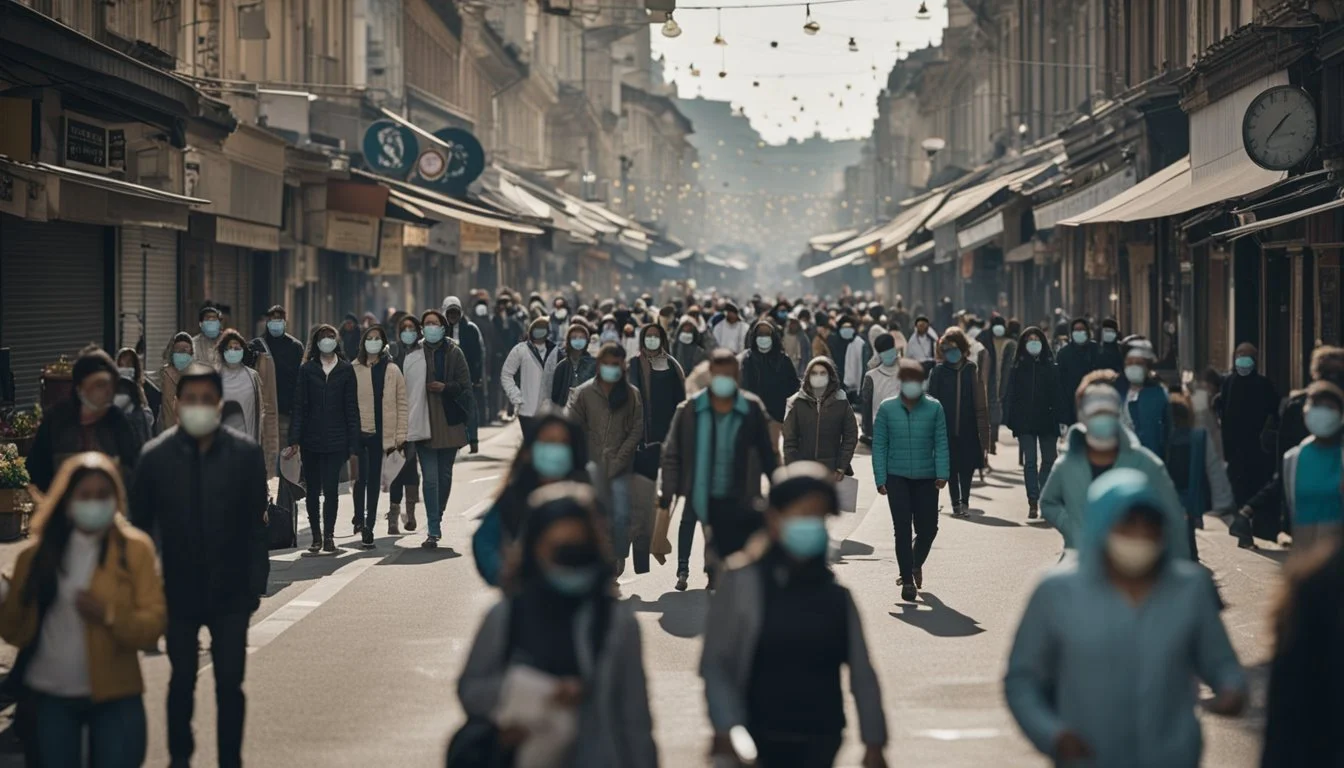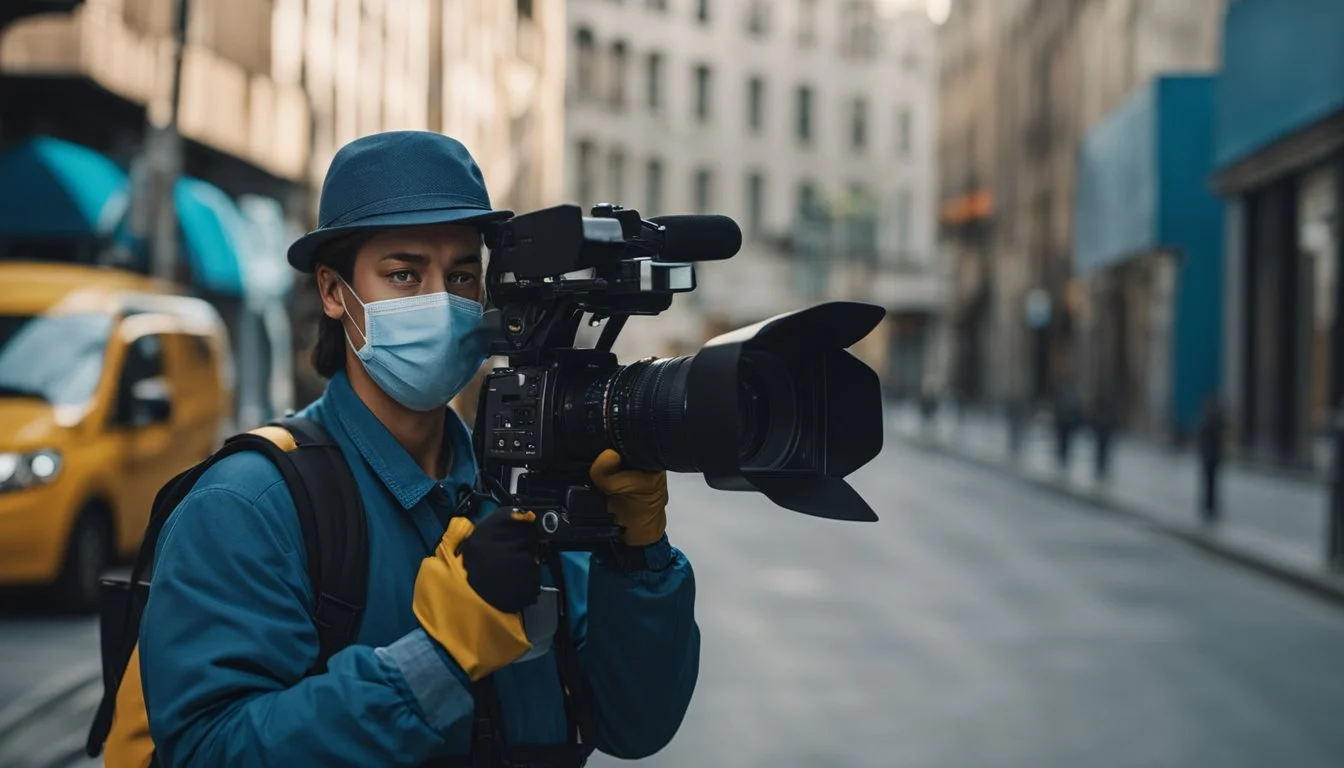8 Pandemic Documentaries That Capture the Global Impact of COVID-19
Essential Viewing for Understanding the Crisis
The COVID-19 pandemic has profoundly impacted lives across the globe since early 2020. As the world grappled with this unprecedented crisis, filmmakers and documentarians worked to capture its far-reaching effects on societies, healthcare systems, and economies.
These pandemic documentaries offer valuable insights into how different countries and communities responded to the coronavirus outbreak. From examining the virus's origins to exploring vaccine development and long-term mental health impacts, these films provide a comprehensive look at the various facets of the global health emergency. Through interviews with experts, frontline workers, and affected individuals, viewers can gain a deeper understanding of COVID-19's multifaceted consequences.
1) Before the Lockdown
As the COVID-19 pandemic began to unfold in early 2020, several documentaries captured the initial uncertainty and growing concern around the world. These films provide a snapshot of life just before widespread lockdowns were implemented.
"76 Days" (2020) offers an intense look at the early days of the outbreak in Wuhan, China. The film follows healthcare workers and patients in four hospitals during the city's 76-day lockdown.
"Totally Under Control" (2020) examines the U.S. government's response to the emerging crisis. It highlights missed opportunities and missteps in the crucial early weeks of the pandemic.
"Coronation" (2020) by dissident artist Ai Weiwei presents a raw, unflinching view of Wuhan during the initial outbreak and lockdown. The film uses footage shot by ordinary citizens to create a powerful portrait of a city in crisis.
These documentaries serve as important historical records, preserving the atmosphere of anxiety and confusion that preceded global lockdowns. They offer valuable insights into how different countries and individuals initially reacted to the threat of COVID-19.
2) Contagion (2011)
"Contagion" stands out as a chillingly accurate portrayal of a global pandemic. Directed by Steven Soderbergh, this thriller follows the rapid spread of a deadly virus and society's response.
The film's depiction of virus transmission, quarantine measures, and vaccine development eerily mirrors real-world events during COVID-19. Its ensemble cast, including Matt Damon and Kate Winslet, brings multiple perspectives to the crisis.
"Contagion" explores themes of fear, misinformation, and the critical role of public health officials. It showcases the interconnectedness of our modern world and how quickly a virus can spread across continents.
The movie's scientific accuracy stems from consultations with epidemiologists and health organizations. This attention to detail lends credibility to its portrayal of pandemic response protocols.
While not a documentary, "Contagion" offers valuable insights into pandemic dynamics. Its blend of scientific fact and dramatic storytelling makes it a compelling watch in light of recent events.
3) 76 Days (2020)
"76 Days" offers a raw, intimate look at the early days of the COVID-19 pandemic in Wuhan, China. Directed by Hao Wu, Weixi Chen, and an anonymous filmmaker, this documentary takes viewers inside four hospitals during the city's 76-day lockdown.
The film captures the struggles and resilience of patients and frontline medical professionals battling the virus. It provides a unique perspective on the chaos and fear that gripped Wuhan in the initial outbreak.
Through its unfiltered lens, "76 Days" reveals the human stories behind the statistics. It shows healthcare workers in hazmat suits comforting scared patients and the emotional toll of isolation on both medical staff and those infected.
The documentary stands out for its immediacy and lack of political commentary. Instead, it focuses on the shared human experience of facing an unknown threat.
"76 Days" premiered at the 2020 Toronto International Film Festival, garnering critical acclaim for its powerful portrayal of courage and compassion amid crisis.
4) Outbreak: The Virus That Shook the World (2021)
This documentary offers a comprehensive look at the first year of the COVID-19 pandemic across multiple continents. Directed by Robin Barnwell, it chronicles the global impact of the virus through personal stories and experiences.
The film showcases footage from 21 different countries, providing a panoramic view of how the pandemic affected people worldwide. It captures key moments from lockdowns and hospital scenes to funerals and protests.
Narrated by Caroline Catz, "Outbreak: The Virus That Shook the World" presents a dramatic narrative of the virus's spread and its devastating consequences. The documentary highlights the challenges faced by individuals, communities, and nations during this unprecedented crisis.
By incorporating personal video footage and local accounts, the film offers intimate perspectives on the pandemic's human toll. It examines how people adapted to new realities and restrictions while grappling with loss and uncertainty.
This documentary serves as a powerful record of a pivotal moment in modern history, documenting the shared global experience of living through the early stages of the COVID-19 pandemic.
5) The Year Earth Changed (2021)
"The Year Earth Changed" offers a unique perspective on the COVID-19 pandemic's impact on nature and wildlife. Directed by Tom Beard and narrated by David Attenborough, this documentary showcases how the global lockdown affected ecosystems worldwide.
The film highlights the unexpected positive consequences of reduced human activity. It captures moments of wildlife reclaiming urban spaces and thriving in areas usually bustling with human presence.
Viewers are treated to remarkable footage of animals exploring cities, beaches, and other typically crowded locations. The documentary presents a thought-provoking look at our relationship with nature and the environment.
"The Year Earth Changed" reminds us of the resilience of nature and the potential for positive change. It encourages reflection on how human behaviors impact the natural world and the possibilities for coexistence.
6) In the Same Breath (2021)
"In the Same Breath" is a documentary directed by Nanfu Wang that offers a unique perspective on the early days of the COVID-19 pandemic. The film examines the initial response to the outbreak in Wuhan, China, and compares it to the subsequent handling in the United States.
Wang uses a combination of on-the-ground footage and interviews to provide a raw look at the unfolding crisis. The documentary highlights the efforts of healthcare workers and citizens in Wuhan as they grappled with the emerging threat.
The film explores themes of government censorship and misinformation during the crucial early stages of the pandemic. It raises questions about the role of media and official communications in shaping public perception and response to the crisis.
"In the Same Breath" also delves into the personal experiences of individuals affected by the pandemic, offering a human-centered view of the global event. The documentary provides a thought-provoking examination of how different societies responded to an unprecedented health emergency.
7) Social Distance (2020)
"Social Distance" offers a unique perspective on the early days of the COVID-19 pandemic. This anthology series explores how people coped with isolation and maintained connections during lockdowns.
Each episode presents a self-contained story, filmed remotely by actors in their homes. The series captures the challenges of virtual communication and the emotional toll of physical separation.
"Social Distance" touches on various pandemic experiences, from family conflicts to professional struggles. It highlights the creative ways people adapted to unprecedented circumstances.
The show's innovative production methods reflect the realities of filmmaking during a global health crisis. It serves as both entertainment and a time capsule of a transformative period in recent history.
More information on "Social Distance" (IMDb)
8) Pandemic: COVID-19 (2020)
"Pandemic: COVID-19" offers a comprehensive look at the early stages of the coronavirus outbreak. The documentary explores the rapid spread of the virus and its global impact.
Viewers gain insights into the challenges faced by healthcare workers on the frontlines. The film also examines the scientific community's race to develop effective treatments and vaccines.
"Pandemic: COVID-19" highlights the economic and social disruptions caused by lockdowns and travel restrictions. It delves into the different approaches taken by various countries to contain the virus.
The documentary features interviews with medical experts, policymakers, and individuals affected by the pandemic. These personal stories provide a human perspective on the crisis.
By capturing real-time events, "Pandemic: COVID-19" serves as a valuable historical record of this unprecedented global health emergency.
More information on "Pandemic: COVID-19"
Overview of Global Impact
The COVID-19 pandemic reshaped economies, healthcare systems, and social interactions worldwide. Its far-reaching effects disrupted global supply chains, led to widespread job losses, and forced societies to adapt to new norms of physical distancing.
Economic Consequences
The pandemic triggered a severe global economic downturn. Stock markets plummeted, and unemployment rates soared as businesses shut down or reduced operations. Many industries, particularly travel, hospitality, and retail, faced unprecedented challenges.
Government stimulus packages aimed to mitigate economic damage. Central banks lowered interest rates and implemented quantitative easing measures. Despite these efforts, millions of people lost jobs or faced reduced income.
Supply chain disruptions caused shortages of essential goods. Small businesses struggled to stay afloat, with many closing permanently. The shift to remote work reshaped office culture and commercial real estate markets.
Social Distancing and Isolation
Lockdowns and stay-at-home orders became common worldwide. Schools closed, forcing a rapid transition to online learning. Social gatherings were restricted, impacting weddings, funerals, and religious services.
Mask-wearing and physical distancing became new social norms. Public spaces implemented capacity limits and safety protocols. Many people experienced increased feelings of loneliness and anxiety due to reduced social interactions.
Telehealth services expanded rapidly to provide medical care remotely. Virtual socializing through video calls became a lifeline for maintaining connections. The pandemic highlighted digital divides, as those without reliable internet access faced greater isolation.
Documentary Filmmaking During the Pandemic
The COVID-19 pandemic posed unique challenges for documentary filmmakers while also spurring creative solutions. Filmmakers adapted their techniques and leveraged technology to continue capturing important stories during this unprecedented time.
Challenges Faced by Filmmakers
Documentary filmmakers encountered numerous obstacles during the pandemic. Travel restrictions limited access to locations and subjects. Social distancing requirements made traditional filming setups difficult.
Many productions had to halt or delay shooting schedules. Some filmmakers faced personal health risks while documenting frontline workers and patients.
Budget constraints increased as productions required additional safety measures and equipment. Finding funding became more challenging in an uncertain economic climate.
Technological Innovations
Filmmakers embraced new technologies to overcome pandemic-related hurdles. Remote filming techniques using video calls and smartphone footage became common.
Some directors mailed camera kits to subjects for self-filming. Others utilized local crew members to capture footage in restricted areas.
Editing and post-production moved to virtual environments. Cloud-based collaboration tools enabled teams to work together from different locations.
Drones and robotic cameras provided options for contactless filming. Virtual reality and augmented reality technologies offered innovative ways to create immersive documentary experiences.



